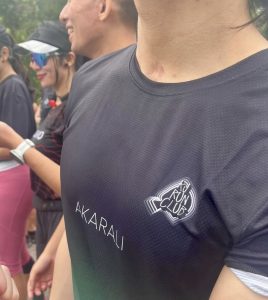
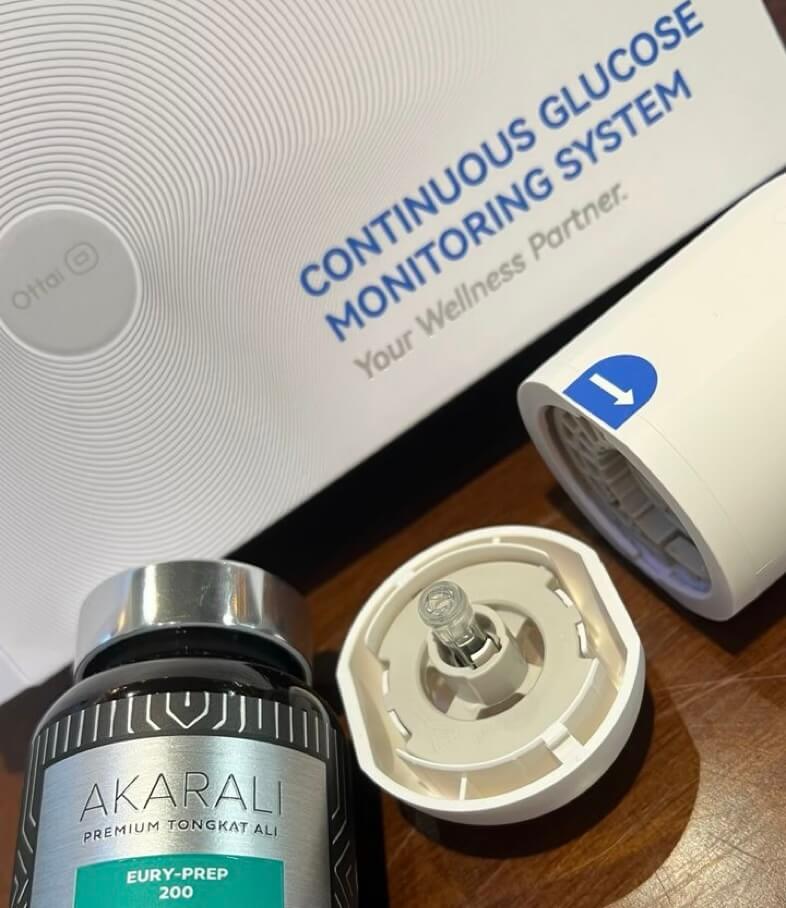
We’ve written the effects of Tongkat Ali root extract on blood sugar and studies showed it lowered blood sugar levels if you are diabetics, but does it affect a non-diabetic person?
Here is a review of what happened to your blood sugar after taking Tongkat Ali short-term for 7 days.
For athletes, runners, and health-conscious individuals, maintaining blood sugar levels at optimal levels is crucial when you are performing your daily tasks or exposed to physical activities. Your body need adequate level of glucose when performing daily tasks, and athletes rely heavily on glucose from its muscles to generate the required strength and energy for endurance-related sports activities.
At this juncture, we know to a high degree of certainty that taking Tongkat Ali before and during exercises may lower blood sugar if you are pre-diabetic or diabetic. Results from glucose-induced animal studies indicated a high percentage of blood sugar reduction after being exposed to Tongkat Ali consumption, and higher dose does lower the blood sugar significant by up to 30% in a span of 24 hours after consumption.
In reality, your glucose level fluctuates every minute the fluctuation is affected by your diet, and your insulin sensitivity status plays a crucial role. As more than 97 million Americans have prediabetes, with 1.2 million new cases recorded each year, the American Diabetes Association has issued guidelines and awareness to reduce the risks.
While dietary changes and natural supplements may reduce the risks of diabetic symptoms and blood sugar spikes, it is important to find out the short-term and long-term impact of taking herbs such as Tongkat Ali (Eurycoma Longifolia).
To find out its impact, I embarked on a self-experiment to explore the effects of a clinically tested, standardised hot-water Tongkat Ali root extract on blood glucose levels.
AKARALI offers pure standardized Tongkat Ali root extract without the addition of maltodextrin. This level of purity makes it a preferred choice if you are worried about the effects of maltodextrin on your blood sugar levels.
Over six days (14th to 19th January 2025), I tested varying doses (200mg – 800mg) while monitoring my glycaemic response with a continuous glucose monitor (CGM) from Ottai, which tracked these metrics through an app, giving it accurate results for this experiment.
In summary, the test results showed that Tongkat Ali did not lower blood sugar level below the optimal levels for a non-diabetic person like myself. But there is more to it that in my experience with Tongkat Ali.
This short-term review suggests Tongkat Ali is probably safe for daily consumption, and negate the worry about how it may affect your glucose level. On the contrary, our test results showed Tongkat Ali’s potential to support glucose levels in healthy individuals, athletes, active adults and those managing diabetes.
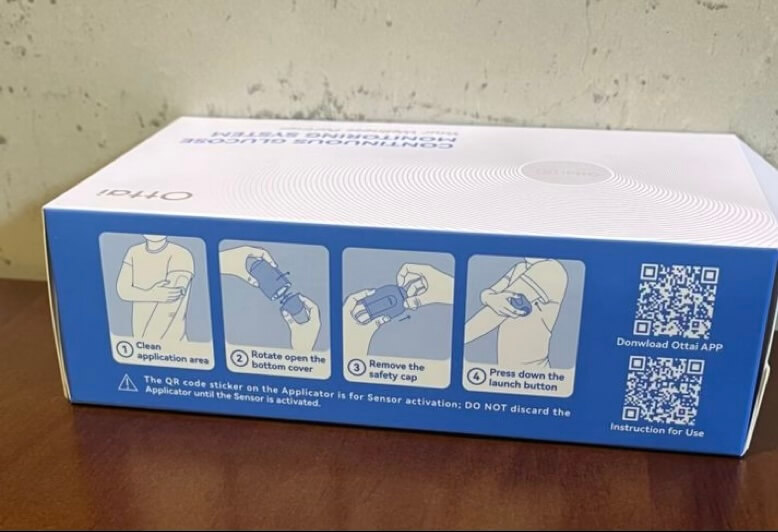
For a non-diabetic person, my test result of taking 200mg to 800mg of standardized Tongkat Ali extract daily showed no significant impact on blood sugar levels, with results showing blood sugar levels averaging between 5.6 mmol/L to 6.7 mmol/L (at 82%-94% within the optimal range) on a daily basis.
This short-term assessment brings a fresh perspective that Tongkat Ali did not increase, or cause any shor-term spike of my blood sugar within the 24-hour window, even at 800mg. Further analysis suggests that high doses of standardized Tongkat Ali hot water extract (at 400mg, 600mg and 800mg) may not lower blood sugar below the average of 6.7 mmol/L for non-diabetic patients taking sweet alcoholic cocktails and high carb foods (eg: rice, meat, chicken, beef).
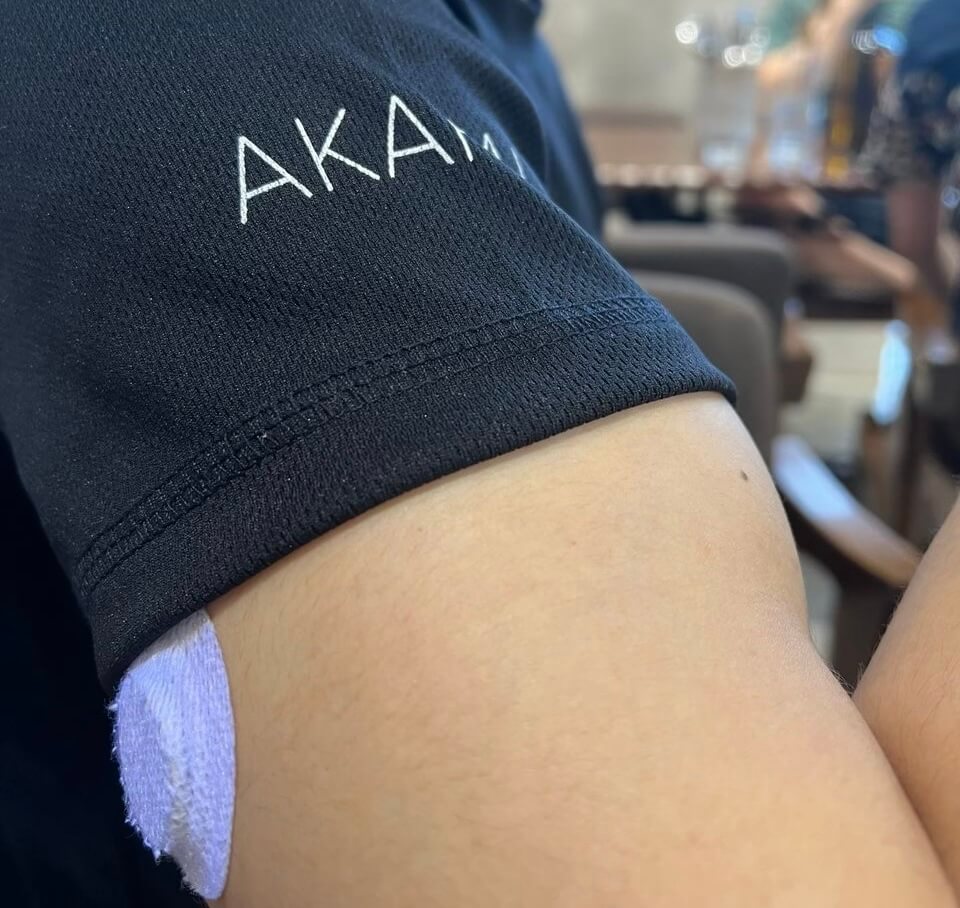
| Day 1 | Day 2 | Day 3 | Day 4 | Day 5 | Day 6 | |
| Tongkat Ali Dose (2PM) | 1 capsule (200mg) | 2 capsules (400mg) | 3 capsules (600mg) | 4 capsules (800mg) | 200mg Powder | NIL |
| Meal (Lunch) | Dry Beef Noodles | Wholemeal Club Sandwich | Beef Roti Canai Roll | Fiend Chicken & Beef Turmeric Rice | XO Sauce Seafood Fried Rice | Beef Bacon Bagel w/ Egg & Cheese |
| (est. Kcal) | 600 | 550 | 650 | 800 | 600 | 600 |
| Meal (Dinner) | Claypot Chicken Rice | Sweet & Sour Pork Ribs & White Rice | Flat Rice Noodles w/ Char Siew, Pork Belly, & Pork Balls | Thai Food – Whole Menu Tasting + 2 cocktails | Pita Bread Chicken Burger | Ramen Noodles w/ Egg and Beef Slices |
| (est. Kcal) | 950 | 850 | 1,000 | 1500~ | 800 | 750 |
| Blood Glucose (Highest) | 10.3 mmol/L | 8.8 mmol/L | 9.3 mmol/L | 9.6 mmol/L | 8.4 mmol/L | 9.1 mmol/L |
| Blood Glucose (Lowest) | 5.1 mmol/L | 5.0 mmol/L | 5.1 mmol/L | 4.5 mmol/L | 4.0 mmol/L | 4.0 mmol/L |
| Blood Glucose (Average) | 6.7 mmol/L | 6.0 mmol/L | 6.2 mmol/L | 6.1 mmol/L | 5.6 mmol/L | 6.6 mmol/L |
| Total In Range (TIR) | 82% | 94% | 92% | 91% | 94% | 85% |
| LAGE | 5.2 mmol/L | 3.8 mmol/L | 4.2 mmol/L | 5.1 mmol/L | 4.4 mmol/L | 5.1 mmol/L |
My deep-dive test involved incrementally increasing daily doses of Tongkat Ali products (obtained from AKARALI), using both 200mg capsules as well as Tongkat Ali powder extract, paired with diverse meals ranging from carbohydrate-heavy lunches (e.g., Beef Roti Canai Roll, 650 kcal) to calorie-dense dinners (e.g., Thai food tasting + cocktails, ~1500 kcal).
This diet combo is chosen to simulate a person’s “normal eating pattern” and in most cases, you will experience a glucose spike 2 hour – 3 hours after your meal.
Despite these high carb calorie diet, my blood glucose levels remained relatively constant within healthy ranges after taking Tongkat Ali as per the table above. Here are some insights that you should know.
Notably, I took my meals as per normal on day 6 without Tongkat Ali Ali and this served as a control dataset to compare the other days when I took Tongkat Ali.
Despite a 600 kcal lunch (Beef Bacon Bagel) and 750 kcal dinner (Ramen Noodles), my glucose remained within the safe range after I stopped taking Tongkat Ali, albeit with higher blood glucose recorded in 3 spikes compared to days when I was taking Tongkat Ali (see screenshot below).
Another observation is that my blood glucose level dropped to 85% within range after I stopped taking Tongkat Ali (on day 6), compared to 91%-94% within range when I was consuming Tongkat Ali. This could indicate that Tongkat Ali may have mild to moderate effect on regulating blood sugar levels by increasing insulin sensitivity based on various type of diets.
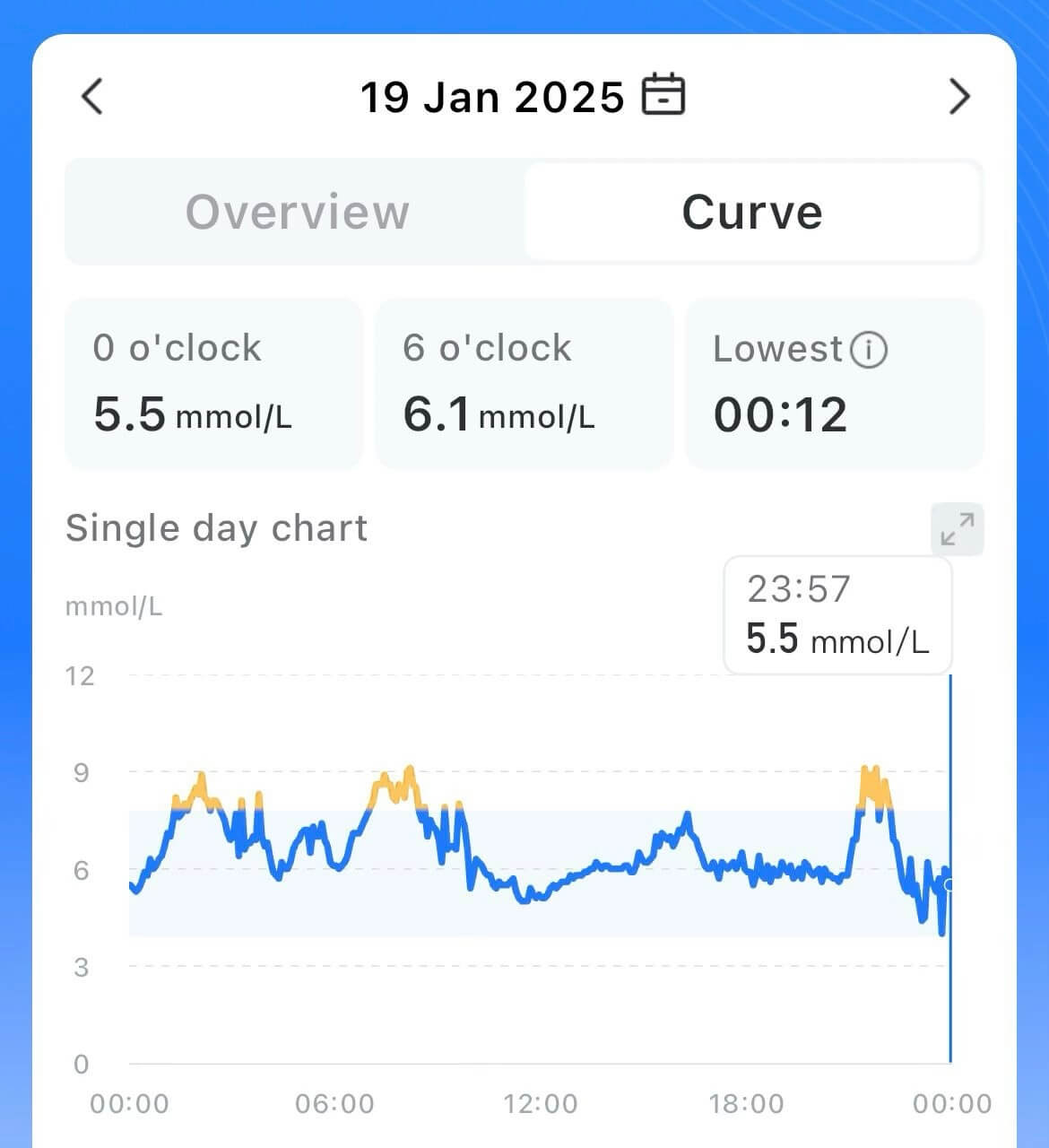
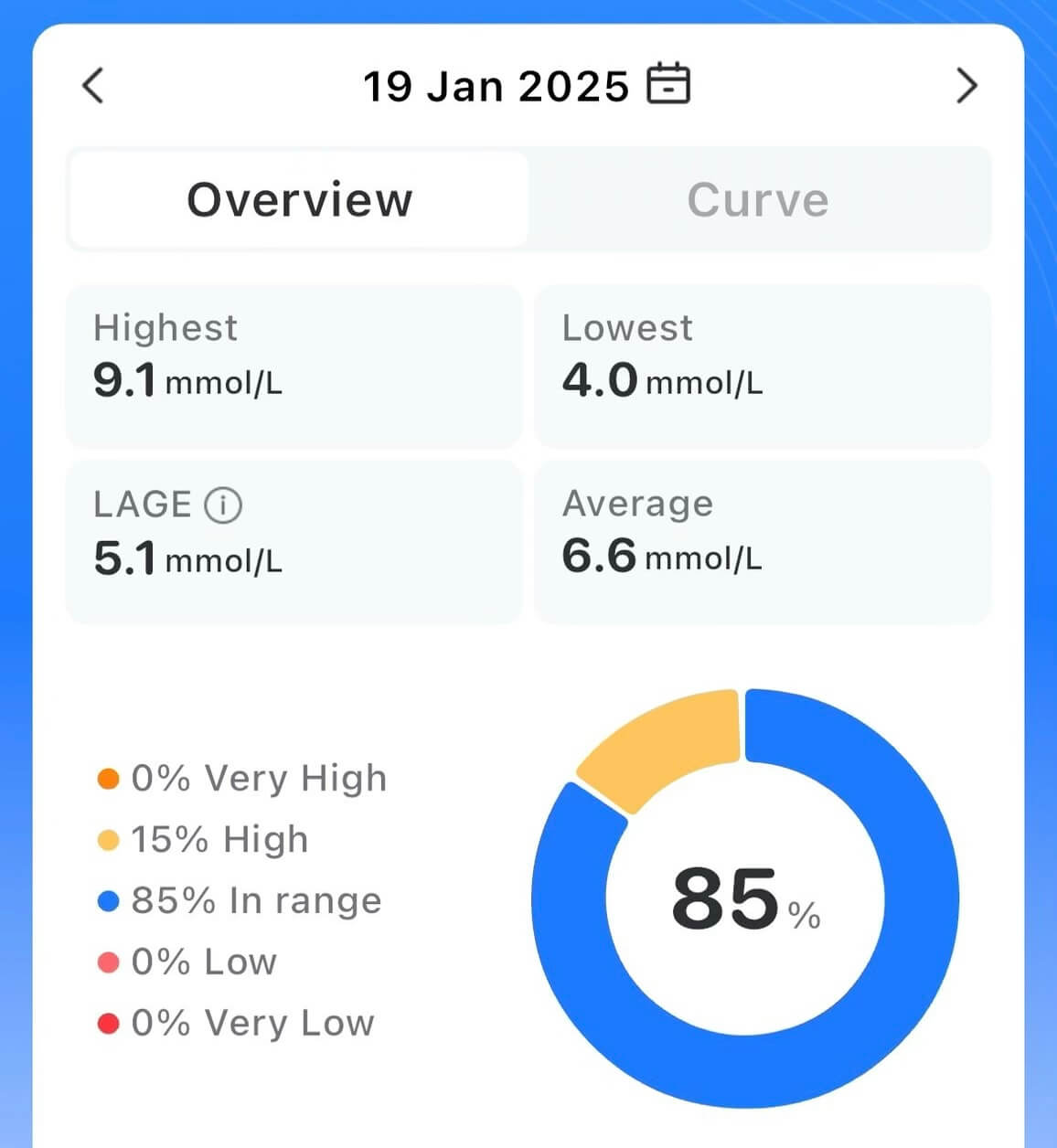
What surprised me was, even at 800mg (4 capsules) of Tongkat Ali which I took (on Day 4), there was no abnormal suppression or lowering of blood sugar below the standard range. This observation challenges misconceptions that high-dose Tongkat Ali risks hypoglycaemia or disrupt insulin resistance in non-diabetic users.
Additionaly, taking 800mg of Tongkat Ali did not cause any jittery, nausea and headaches – contrary to what was reported by Reddit users after taking US-made Tongkat Ali supplements. This could be potentially due to the high-quality standardized root extract used in this pilot study.
High quality Tongkat Ali brands such as AKARALI uses standardized hot water extract that are known to regulate the blood sugar levels of non-diabetic person to healthy levels, but it lowers the blood sugar if you are diabetic, of if you have insulin resistance.
In view of this, the blood glucose spike reported by Reddit users may be caused by Tongkat Ali supplements that contain excessive amount of maltodextrin (i.e a common filler used in many Tongkat Ali supplements to artificially enhance the energy boost) with high glycemic index (GI) value of 95.0.
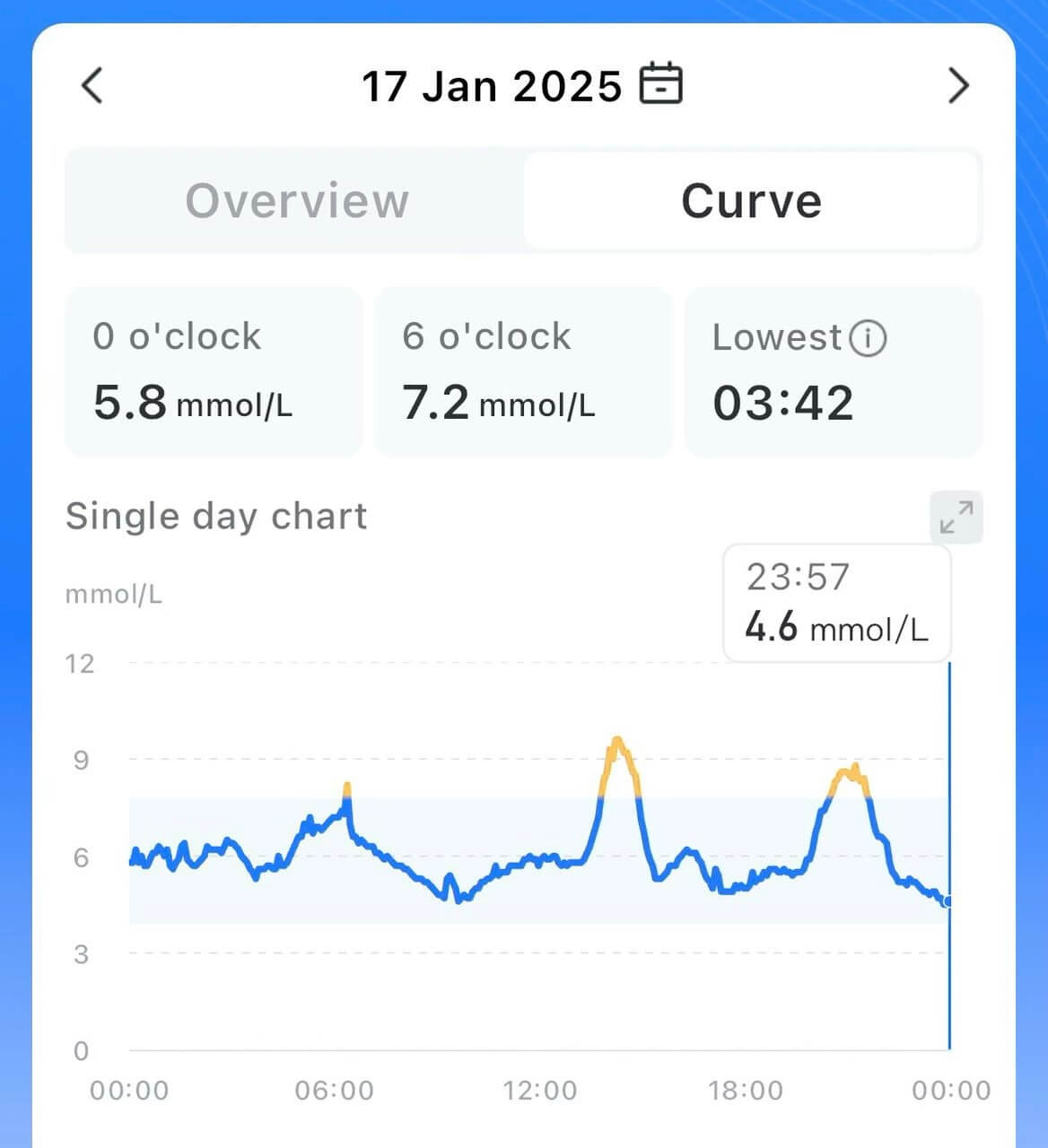
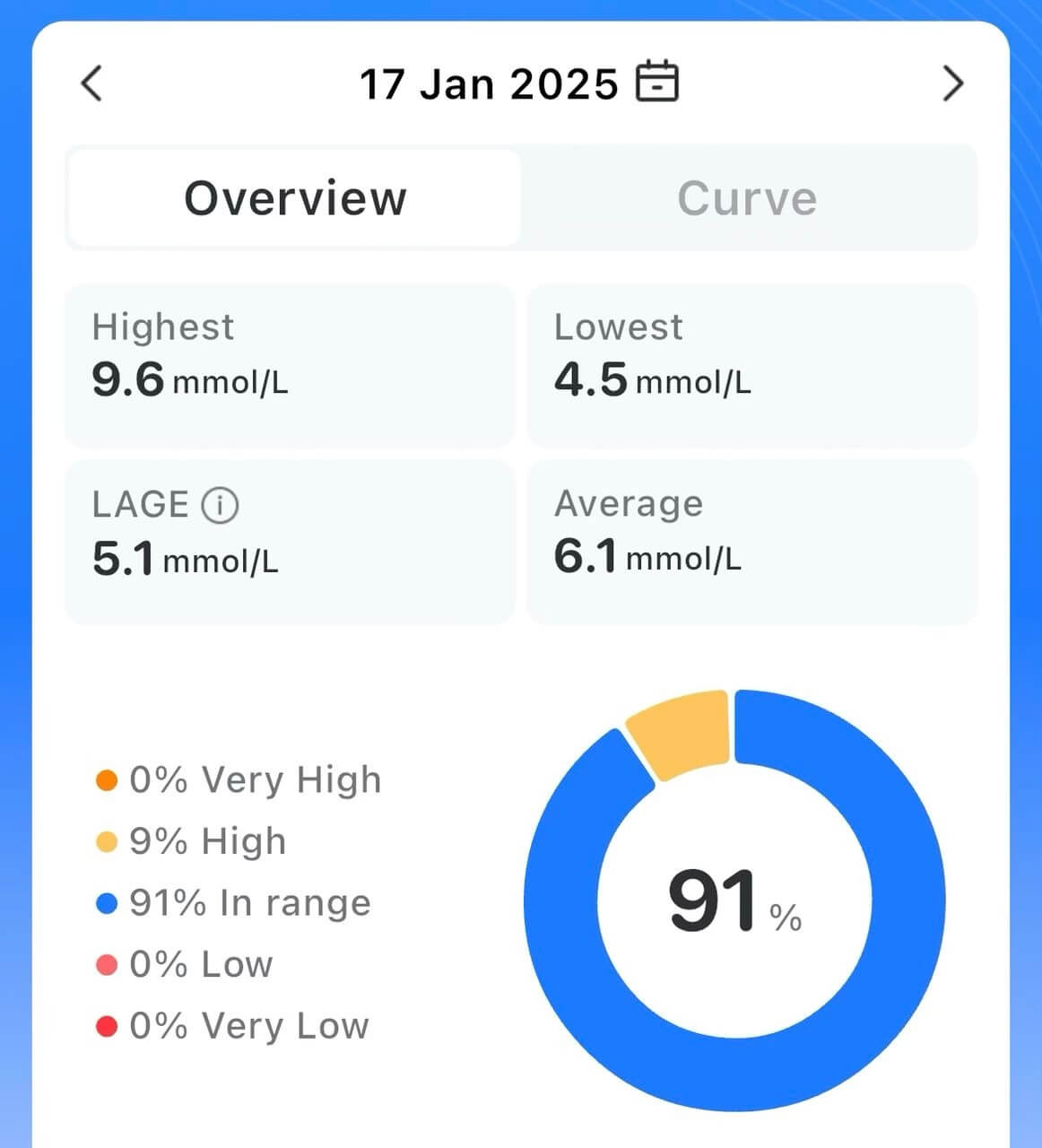
In view of the perceived risks that Tongkat Ali may lower blood sugar, this pilot study conducted on a non-diabetic person showed that there is minimal impact to the overall blood sugar if you are taking Tongkat Ali at 200mg, 400mg, or even 800mg.
There was no drop in blood sugar when taken together with whole meal high-carb food with occasional dessert or with sweet drinks in moderate amount. Therefore, athletes with high glycogen needs may not be worried when taking Tongkat Ali.
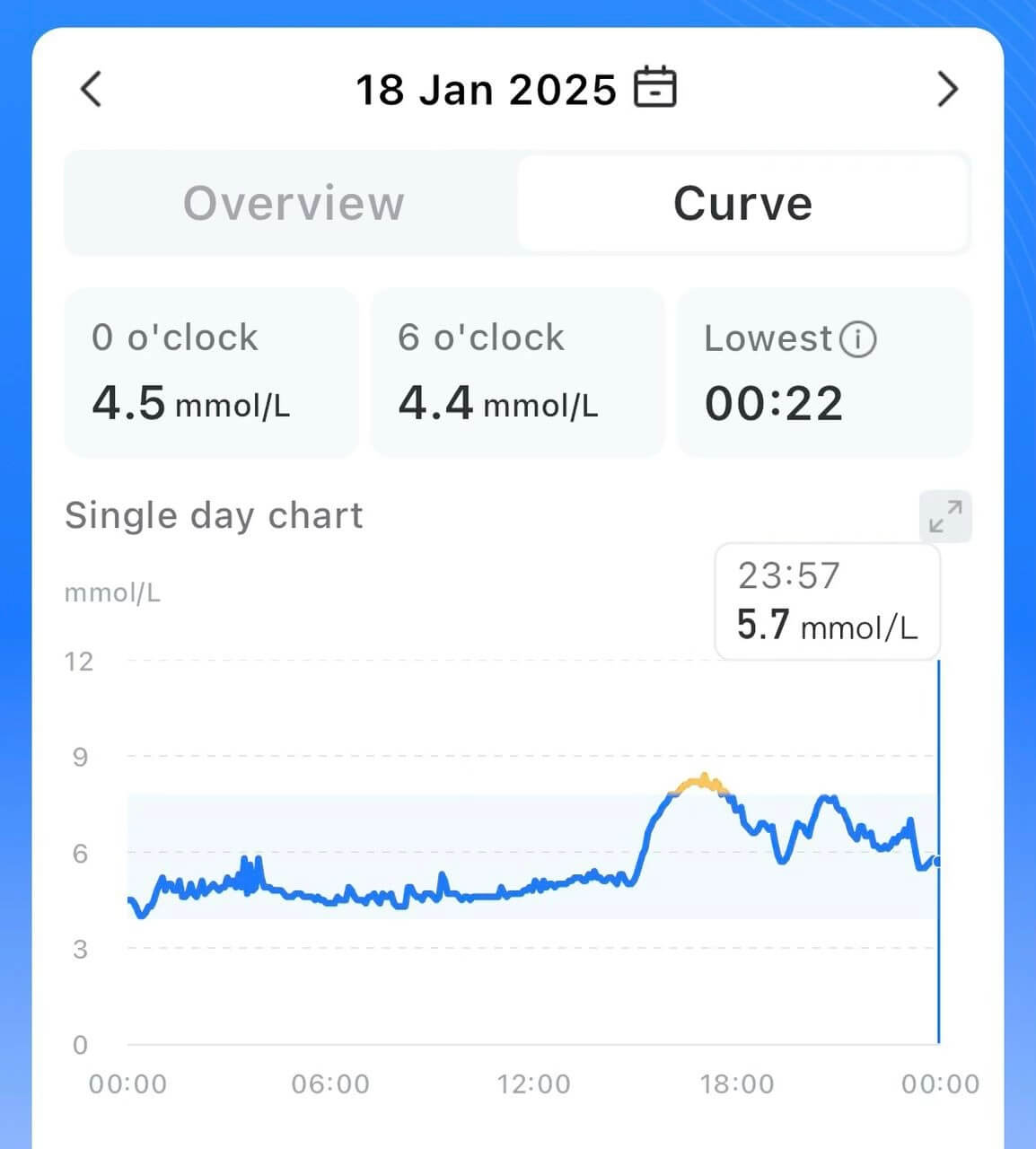
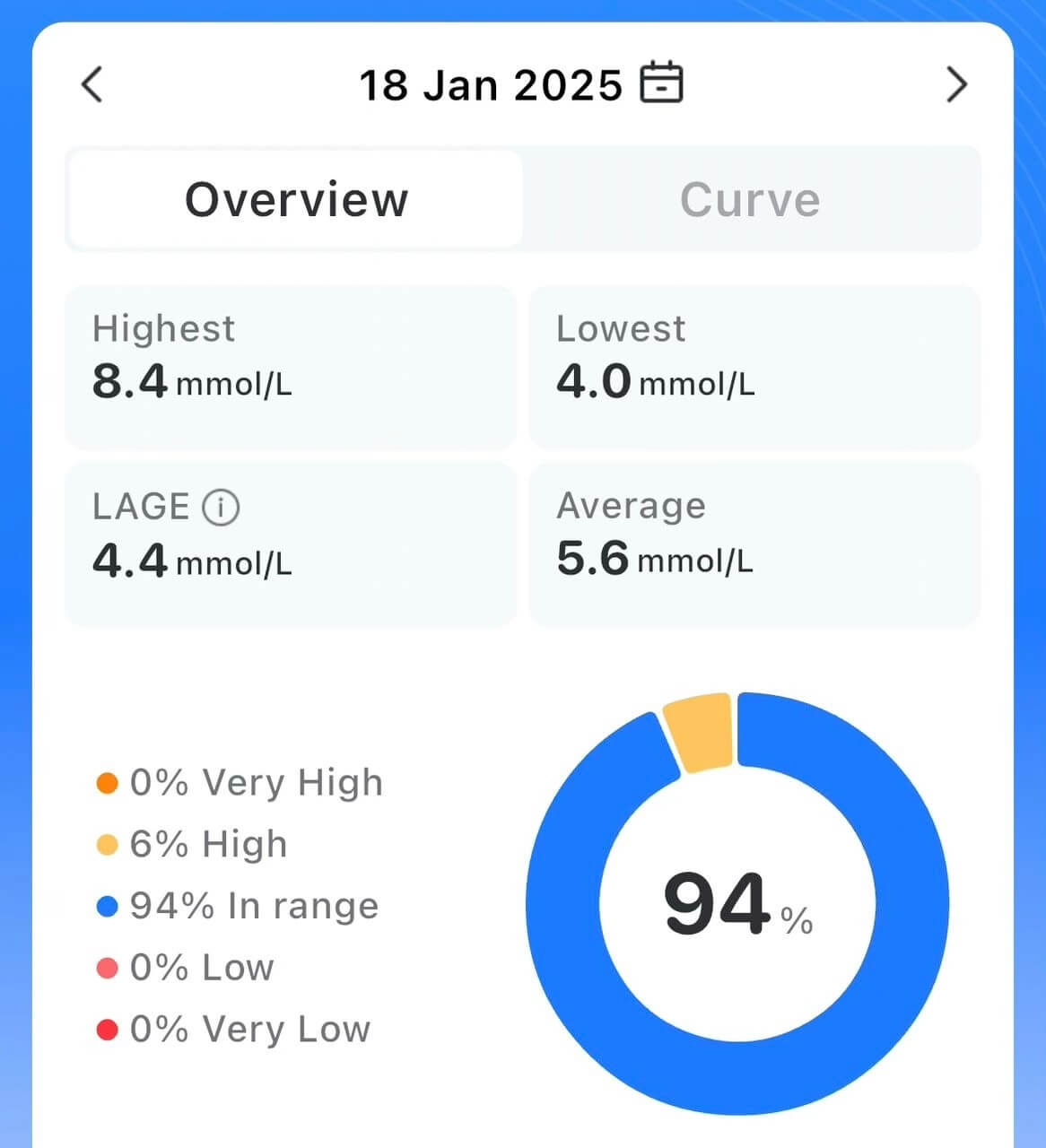
For runners and athletes, maintaining steady glucose levels helps optimize performance, endurance, injury prevention, and recovery – making it a key factor in sports nutrition and supplementation strategies, according to a study published in the scientific journal Sports Medicine.
"Blood glucose regulation has been studied for well over a century as it is intimately related to metabolic health. Research in glucose transport and uptake has also been substantial within the field of exercise physiology as glucose delivery to the working muscles affects exercise capacity and athletic achievements."
My glucose tracking data suggests Tongkat Ali may act as a glycaemic buffer for non-diabetic patients or healthy adults, mitigating extreme blood sugar spikes without overcorrecting the glucose levels below than the safety range. This was evidenced in the experiment during day 4 and day 5 after taking Tongkat Ali, for example:
This aligns with studies showing how Tongkat Ali’s adaptogenic properties help regulate testosterone, cortisol and insulin sensitivity, indirectly supporting metabolic equilibrium that your body needs despite high calorie and sugar intake.
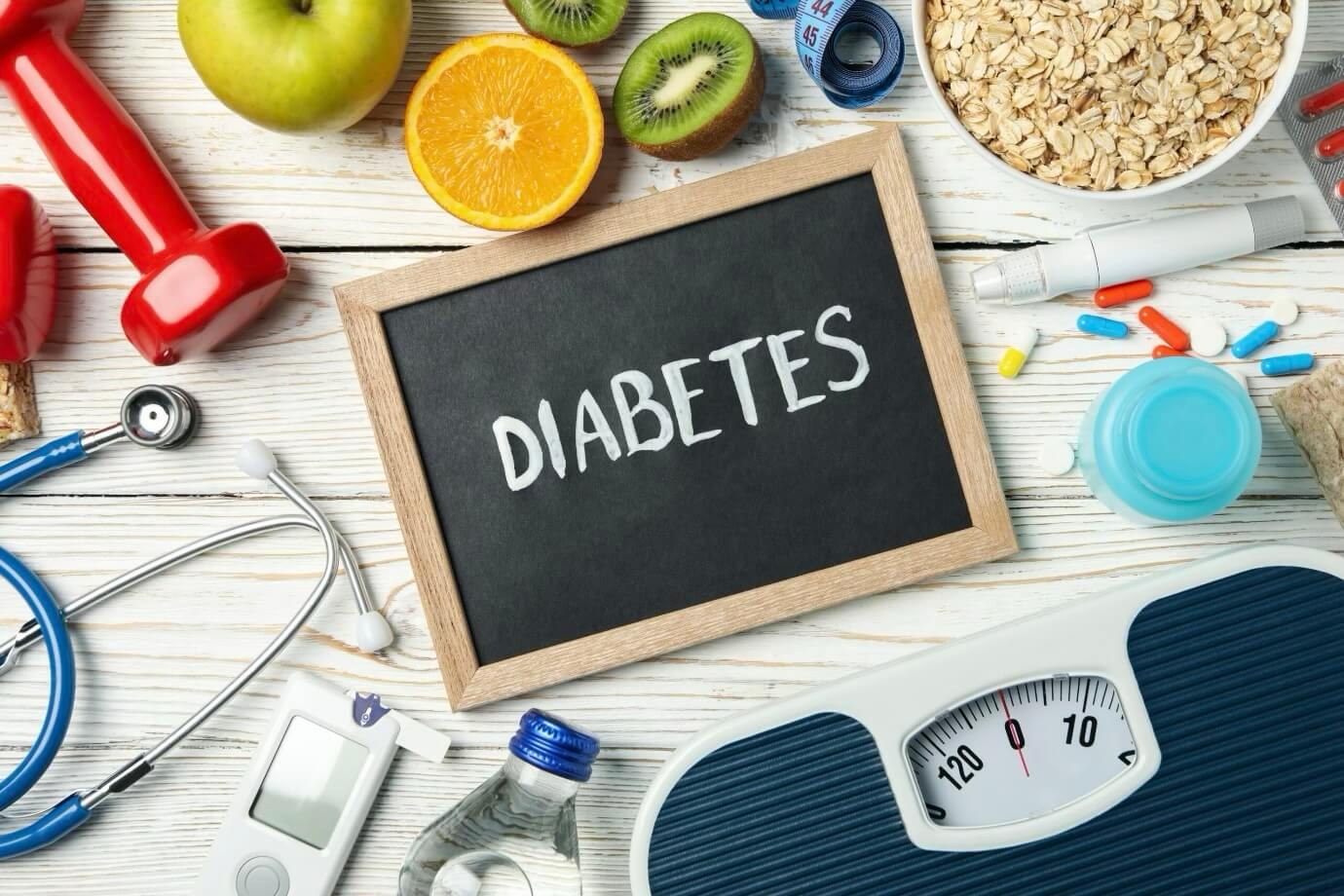
While my experiment focused on a non-diabetic individual, the implications for those managing diabetes are promising.
Stable post-meal averages (e.g., 5.6–6.7 mmol/L) and reduced glycemic volatility suggest Tongkat Ali could complement existing therapies to dampen extreme blood sugar spikes. This study shows you can eat normally without worrying any potential blood sugar spike or lowering of blood sugar below the standard range when taking Tongkat Ali, even at high dose of 800mg in a single intake.
In fact, standardized hot-water Tongkat Ali root extract has demonstrated antihyperglycemic properties in other studies involving diabetic animals – notably reduction of blood sugar levels by 30-40%, improving insulin sensitivity, supporting pancreatic beta-cell function, and reducing glucose absorption.
Most peer-reviewed research on Tongkat Ali at this juncture highlights dose-dependent reductions in blood glucose (up to 41% in hyperglycaemic conditions) and improved lipid profiles, addressing common comorbidities like dyslipidaemia. These effects, coupled with anti-inflammatory benefits, position Tongkat Ali as a potential complementary supplement for glycaemic control.
However, diabetic patients should exercise caution when taking Tongkat Ali at doses beyond 600mg especially if you are already taking diabetic medication. According to health experts, Tongkat Ali may interact with medications like blood glucose-lowering medication Metformin or Sulfonylureas, risking hypoglycaemia if combined at high doses without supervision by medical professionals.
While there is currently no evidence that Tongkat Ali cause hypoglycaemia or lowering your blood sugar below 3.1 mmol/L, health experts advise diabetic patient to start with low doses (100–200mg daily) of Tongkat Ali and prioritizing third-party lab tested Tongkat Ali supplements (that are relatively pure with minimal maltodextrin) to avoid any potential blood sugar spikes.
Maltodextrin has a higher glycemic index (GI) than table sugar and Tongkat Ali that contains maltodextrin should be avoided if you are diabetic as it can cause sharp spikes of blood sugar when taken in excessive amount.
Pairing Tongkat Ali supplementation (using pure root standardized extract) with a low-sugar diet or intermittent fasting may regulate your blood sugar levels, enhancing testosterone levels and metabolic efficiency – critical for managing insulin resistance in Type 2 diabetes. However, you are still required to monitor your blood sugar level daily if you are diabetic and Tongkat Ali should not be viewed as a cure for any types of diabetes.
Ultimately, while Tongkat Ali offers a natural means to stabilize glucose and reduce HbA1c (a form of haemoglobin that is chemically linked to a sugar) over weeks, consultation with a healthcare provider is crucial for chronic diabetic patients.
Please also note that individual responses on blood glucose may vary when taking Tongkat Ali, and protocols should be tailored with changes in diet to increase efficacy and avoid undermining existing diabetic therapies.

As someone passionate about bridging together fitness, traditional wisdom, and modern science, I’m confident that standardized Tongkat Ali root extract is a safe ally for metabolic health, having used daily doses of 400mg – 600mg myself for nearly two years outside of this experiment.
My test run demonstrates that even higher doses do not destabilize glucose levels or putting my blood sugar levels at risk to the point that it hampers my running performance or daily activities. Instead, taking Tongkat Ali may enhance your body’s innate ability to ensure the glucose levels stay in the standard range – which can be beneficial for athletes seeking peak endurance performance.
If you are interested in experiencing the blood glucose stabilising benefits of Malaysian single-origin standardized hot-water Tongkat Ali root extract for yourself, you can get your hands on AKARALI’s dose-optimized capsules, pure powder extract, or potent coffee, available worldwide with international delivery via DHL express.
Learn More or Contact Us
Learn more about the best Tongkat Ali in the world, or reach out to us at any of our international offices if you have any queries or concerns.

Alex Kua leads AKARALI’s Global Partnership Community to help athletes, sports communities, and thousand of others optimize their well-being through evidence-based research that enables them to make better informed decisions. His legal and business consulting background underpins the rigorous data-driven approach in his writing – from hours of interviews, real-world performance data, and firsthand experiences of real people – offering actionable insights that connects clinical research, emerging health trends, and real-world applications. He is also an experienced researcher in herbal nutrition, with years of deep technical knowledge on Tongkat Ali (Eurycoma longifolia), including quality standards, industry benchmarks, lab tests, clinical trials, and the use of natural herbs by collaborating with top scientists, herbal experts, and nutritionists. As part of the core team behind AKARALI’s knowledge portal, he empowers people worldwide to access the benefits of high-quality herbal nutrition in a way that is effective, sustainable, and safe. He is also an avid runner, with regular participation in local sports communities and running events.
Our articles are third party reviewed by our panel of experts and medical advisors to ensure the facts are accurate and credible. These are validated against multiple source references which include but not limited to research studies, peer-reviewed journals, pre-clinical studies, clinical tests and other credible publications.
Our panel of medical advisors and experts are highly experienced in their individual fields. However, they do not provide any medical advice or recommendations arising from content published in this article.
Disclaimer:
The content published on this website is for educational purposes and should not be viewed, read, or seen as a prescription or constitute any form of medical advice. We recommend you consult your nearest GP or doctors before consuming Tongkat Ali or any products which contain Tongkat Ali. For further information, kindly refer to our Frequently Asked Questions (FAQ) for more information.